
Wang Bing
출생 : 1967-01-01, Xi'an, Shaanxi Province, China
약력
Born in Xi’an, Shaanxi Province, China, in 1967, Wang Bing studied photography at the Lu Xun Academy of Fine Art and cinematography at Beijing Film Academy. He began his career as an independent filmmaker in 1999. Discovered in 2003, West of Tracks, an enormous documentary work of more than 9 hours, has garnered great success internationally. In addition to his feature documentaries, he is also active in video installation, fiction film and photography.
His work has been selected for presentation and competition in many film festivals where he has won a great number of awards. His documentaries have been released in theaters internationally. Acclaimed by critics and recognized as one of the most important Chinese artists, documentary makers and film directors of his time, he has been honored by retrospectives of his entire oeuvre in major museums, such as the Centre Pompidou in Paris at the Cinémathèque Royale de Belgique or at Documenta.

Himself
Wang Bing is one of the greatest documentary-makers alive today, and his films offer a very insightful overview of the transformations occurring in Chinese society. Here, Dominique Auvray conducts an interview that, in addition to the biographical information, focuses above all on the relationship with things unsaid: Wang Bing attempts to do justice to his theme and the testimonies he’s gathered, but he stumbles over the words, struggling to keep his emotions in check. The pain of tackling history shows through the awkward speech.

Himself
왕빙은 지금 중국에서 농민들, 노동자들, 때로는 부랑자들의 삶을 찍고 있는 다큐멘터리 감독이다. 2003년 철서구로 시작해서 이름 없는 남자, 세 자매, 광기가 우리를 갈라놓을 때까지를 찍었다. 그의 작업은 대담하고 정직하며 끈질기면서 때로 그 삶에서 시적인 순간을 끌어내기도 한다. 이 영화는 베이징에서 시작해서 그해 겨울 윈난성 북쪽 끝에서 남쪽 끝 국경까지, 정글에서 정신병원까지, 왕빙을 따라가면서 그 곁에서 기록한 일종의 모험활극이다. 거기서 만난 중화인민공화국 인민들, 그들의 삶, 그들의 표정. 그걸 찍어나가는 왕빙, 나는 그 곁에서 영화가 과정의 예술이라는 비밀을 배우고 싶었다. 진정한 비밀. 말하자면 배움의 영화.

Director
Liming is a worker district close to Shanghai – the richest city in China. Every year, many young people leave their villages and move there. They are between 17 and 20, all from rural Yunnan Province, 2,500 km west, where the Yangtze River has its source. These young Yunnanese often live at their place of work, in dormitories, unsanitary rooms, or sometimes in small studios. Time and space to meet is missing them. So they communicate through QQ, MSN China. They live as adults but they are teenagers, and the unstable situation, economic pressures, geographical dispersion, burn their innocence and youth. Wang Bing will spend a year with them in Liming: at work, at home, on the Internet, every day of their professional, romantic, and friendly relations. At the end of the year he will follow them in the opposite direction to their province of origin, to be with their family and celebrate Chinese New Year.

Writer
중국 서북부에 위치한 간쑤성에는 60년 전 공산당이 주도한 반우파운동이 한창인 시절, 강제노동수용소에 갇혀 굶어 죽은 수감자들의 흔적이 여전히 남아 있다. 지아비앙고와 밍수이 강제노동수용소에서 가까스로 살아남은 이들의 생생한 증언을 기록한다.

Director of Photography
중국 서북부에 위치한 간쑤성에는 60년 전 공산당이 주도한 반우파운동이 한창인 시절, 강제노동수용소에 갇혀 굶어 죽은 수감자들의 흔적이 여전히 남아 있다. 지아비앙고와 밍수이 강제노동수용소에서 가까스로 살아남은 이들의 생생한 증언을 기록한다.

Sound
중국 서북부에 위치한 간쑤성에는 60년 전 공산당이 주도한 반우파운동이 한창인 시절, 강제노동수용소에 갇혀 굶어 죽은 수감자들의 흔적이 여전히 남아 있다. 지아비앙고와 밍수이 강제노동수용소에서 가까스로 살아남은 이들의 생생한 증언을 기록한다.

Director
중국 서북부에 위치한 간쑤성에는 60년 전 공산당이 주도한 반우파운동이 한창인 시절, 강제노동수용소에 갇혀 굶어 죽은 수감자들의 흔적이 여전히 남아 있다. 지아비앙고와 밍수이 강제노동수용소에서 가까스로 살아남은 이들의 생생한 증언을 기록한다.

Director
사상가, 시인 가오 에르타이는 문화대혁명을 거치며 전체주의 체제하에서 50년이 넘는 세월 동안 겪었던 경험에서 나온 그의 미학과 소외를 담은 작품들은 강압에 의해 개인이 소외 당하고 권력의 도구로 전락하는 과정에 대한 통렬한 분석을 제공한다. 왕빙의 "사령혼: 죽은 넋"과 닿아 있는 작품

Sound
중국 하층민의 삶을 카메라에 담은 왕빙 감독의 신작. 알츠하이머병을 앓는 미세스 팡의 마지막 모습을 섬세하게 그리고 시적으로 표현한다. 슬픔과 불안의 순간, 그리고 죽음을 맞이하는 숭고의 순간을 영화적으로 담아낸다.

Screenplay
중국 하층민의 삶을 카메라에 담은 왕빙 감독의 신작. 알츠하이머병을 앓는 미세스 팡의 마지막 모습을 섬세하게 그리고 시적으로 표현한다. 슬픔과 불안의 순간, 그리고 죽음을 맞이하는 숭고의 순간을 영화적으로 담아낸다.

Cinematography
중국 하층민의 삶을 카메라에 담은 왕빙 감독의 신작. 알츠하이머병을 앓는 미세스 팡의 마지막 모습을 섬세하게 그리고 시적으로 표현한다. 슬픔과 불안의 순간, 그리고 죽음을 맞이하는 숭고의 순간을 영화적으로 담아낸다.

Editor
중국 하층민의 삶을 카메라에 담은 왕빙 감독의 신작. 알츠하이머병을 앓는 미세스 팡의 마지막 모습을 섬세하게 그리고 시적으로 표현한다. 슬픔과 불안의 순간, 그리고 죽음을 맞이하는 숭고의 순간을 영화적으로 담아낸다.

Director
중국 하층민의 삶을 카메라에 담은 왕빙 감독의 신작. 알츠하이머병을 앓는 미세스 팡의 마지막 모습을 섬세하게 그리고 시적으로 표현한다. 슬픔과 불안의 순간, 그리고 죽음을 맞이하는 숭고의 순간을 영화적으로 담아낸다.

Director
The town of Zhili accounts for 80 percent of China's output of children's clothes. 15 Hours was shot in August 2016. Zhili, part of the city of Huzhou in the province of Zhejiang, is home to around 18,000 small factories for children's clothing, manned throughout the year by over 200,000 migrant workers. In the 1980s, Zhejiang saw the emergence of a private capital-based garment industry open to any and all operators prepared to invest in flexible business models based on mutual credit or leasing. This film documents one day in the lives of the workers of 68 Xisheng Road in Zhili.

Director
중국에서 가장 번영한 도시 상하이의 이웃 지역에 위치한 산업 지역 리밍. 매년 많은 사람들이 시골에 있는 그들의 마을을 떠나 이곳으로 온다. 이들은 보통 17-20세로 서쪽으로 1500마일 떨어진 윈난성 출신이다. 일하는 곳이나 도미토리, 좁은 아파트 등 건강에 좋지 않은 곳에 살고 있는 이들은 성인인 척 행세하지만, 불안정한 상황, 경제적 압박, 공간적 단절로 순수함과 젊음을 소진하고 있는 십대에 불과하다.
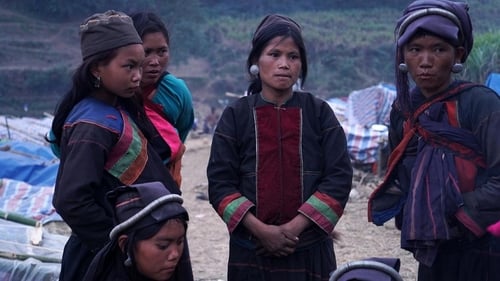
Editor
The Ta'ang or Palaung people, an ethnic minority living in the mountainous area between Myanmar's Kokang region and China's Yunnan province, have historically suffered many forced migrations due to war. When their survival is threatened again in 2015, thousands of them flee across the border. Filmmaker Wang Bing accompanies them and becomes a privileged witness to a human story that is both a modern reportage and a mythical epic.

Director of Photography
The Ta'ang or Palaung people, an ethnic minority living in the mountainous area between Myanmar's Kokang region and China's Yunnan province, have historically suffered many forced migrations due to war. When their survival is threatened again in 2015, thousands of them flee across the border. Filmmaker Wang Bing accompanies them and becomes a privileged witness to a human story that is both a modern reportage and a mythical epic.

Director
The Ta'ang or Palaung people, an ethnic minority living in the mountainous area between Myanmar's Kokang region and China's Yunnan province, have historically suffered many forced migrations due to war. When their survival is threatened again in 2015, thousands of them flee across the border. Filmmaker Wang Bing accompanies them and becomes a privileged witness to a human story that is both a modern reportage and a mythical epic.
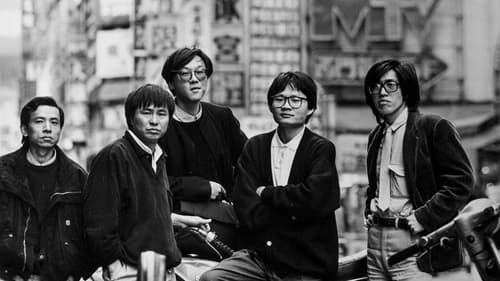
Self
허우샤오시엔과 에드워드 양으로 대표되는 대만 뉴웨이브가 세계 영화계에서 부상하게 된 과정과 그들의 영화가 세계 영화계에 미친 영향을 탐구하는 다큐멘터리.

Director
Wang Bing filmed "Traces" in 2005, during the search for locations for his film "The Ditch", in former "labour camps" in the Gobi Desert, where thousand of political prisoners had died of hunger. For the first time, he used 35mm black and white film (a gift from artist Yang Fudong) to capture this landscape condemned to disappear. With no sound, the film records the final, barely visible traces of human lives: bones, clothing, footsteps... Drawing on experimental documentary, this short video echoes other subjects dear to Wang Bing : the story of the campaign against the "rightist elements" in the early 1950s and the reeducation and hard labour camps established before the Cultural Revolution. This film, which was not edited until 2014, was first presented at the Centre Pompidou the same year and then again at the Galerie Chantal Crousel in 2018.

Cinematography
In 2010, while he was filming "Three Sisters" in the mountain of Yunnan province, Wang Bing met two teenagers, Yonggao and Yongjin, whose father, a stonemason, had gone to the city in the hope of finding work. Wang Bing met up with them again in 2014, when they had been reunited with their father after four years in Fumin. For about a month, Wang Bing filmed their daily lives in the single squalid room that was their home. The fixed camera recorded the micro-events that punctuated their days : their father leaving for work, the youngsters themselves waking up, breakfast time, in front of the television, etc.

Editor
In 2010, while he was filming "Three Sisters" in the mountain of Yunnan province, Wang Bing met two teenagers, Yonggao and Yongjin, whose father, a stonemason, had gone to the city in the hope of finding work. Wang Bing met up with them again in 2014, when they had been reunited with their father after four years in Fumin. For about a month, Wang Bing filmed their daily lives in the single squalid room that was their home. The fixed camera recorded the micro-events that punctuated their days : their father leaving for work, the youngsters themselves waking up, breakfast time, in front of the television, etc.

Director
In 2010, while he was filming "Three Sisters" in the mountain of Yunnan province, Wang Bing met two teenagers, Yonggao and Yongjin, whose father, a stonemason, had gone to the city in the hope of finding work. Wang Bing met up with them again in 2014, when they had been reunited with their father after four years in Fumin. For about a month, Wang Bing filmed their daily lives in the single squalid room that was their home. The fixed camera recorded the micro-events that punctuated their days : their father leaving for work, the youngsters themselves waking up, breakfast time, in front of the television, etc.

Editor
가감없이 거친 현실을 직시함으로서 충격을 던지는 중국 윈난 성의 한 병원에 대한 다큐멘터리다. 남녀 약 200여명의 환자들은 아무도 스스로 원치 않았지만 여러가지 사정으로 병동에 수감된다. 엽기적인 살인을 한 환자도 있지만, 별다른 이유 없이 단순한 장애가 있거나 스스로 자립하지 못해서 사회에서 버려진 밑바닥 사람들이다. 아무런 희망도 없는 유령같은 존재들은 열악한 시설 속의 콘트리트 건물 안에 갇혀 최소한의 인권에 대한 의구심마저 들게 한다. 할 수 있는 것은 잠을 자는 것과 반복적으로 담배를 피는 것, 철망 안에서 무기력하게 걷거나 옷을 입고 벋고를 반복하는 것 정도다. 때로는 뛰기도 하고, 소리를 질러보기도 하지만 이들을 가장 괴롭게 하는 것은 외로움이다. 10년이고 20년이고 바깥세상을 보지 못했지만, 바깥세상도 그들을 거의 찾지 않았다. 인간에게는 정서적 뿐만 아니라 육체적 관계에 대한 욕망이 충족될 필요가 있다. 그래서 그들은 가족과 사회로부터 결핍된 애정을 서로 간에 끈끈한 관계를 맺어가며 스스로 치유한다. 그것은 철장 바깥의 도덕적 잣대와는 상관없는 새로운 세상이 된다. 227분의 상영시간은 마치 짧은 한 숨 같이 느껴진다.

Director of Photography
가감없이 거친 현실을 직시함으로서 충격을 던지는 중국 윈난 성의 한 병원에 대한 다큐멘터리다. 남녀 약 200여명의 환자들은 아무도 스스로 원치 않았지만 여러가지 사정으로 병동에 수감된다. 엽기적인 살인을 한 환자도 있지만, 별다른 이유 없이 단순한 장애가 있거나 스스로 자립하지 못해서 사회에서 버려진 밑바닥 사람들이다. 아무런 희망도 없는 유령같은 존재들은 열악한 시설 속의 콘트리트 건물 안에 갇혀 최소한의 인권에 대한 의구심마저 들게 한다. 할 수 있는 것은 잠을 자는 것과 반복적으로 담배를 피는 것, 철망 안에서 무기력하게 걷거나 옷을 입고 벋고를 반복하는 것 정도다. 때로는 뛰기도 하고, 소리를 질러보기도 하지만 이들을 가장 괴롭게 하는 것은 외로움이다. 10년이고 20년이고 바깥세상을 보지 못했지만, 바깥세상도 그들을 거의 찾지 않았다. 인간에게는 정서적 뿐만 아니라 육체적 관계에 대한 욕망이 충족될 필요가 있다. 그래서 그들은 가족과 사회로부터 결핍된 애정을 서로 간에 끈끈한 관계를 맺어가며 스스로 치유한다. 그것은 철장 바깥의 도덕적 잣대와는 상관없는 새로운 세상이 된다. 227분의 상영시간은 마치 짧은 한 숨 같이 느껴진다.

Producer
가감없이 거친 현실을 직시함으로서 충격을 던지는 중국 윈난 성의 한 병원에 대한 다큐멘터리다. 남녀 약 200여명의 환자들은 아무도 스스로 원치 않았지만 여러가지 사정으로 병동에 수감된다. 엽기적인 살인을 한 환자도 있지만, 별다른 이유 없이 단순한 장애가 있거나 스스로 자립하지 못해서 사회에서 버려진 밑바닥 사람들이다. 아무런 희망도 없는 유령같은 존재들은 열악한 시설 속의 콘트리트 건물 안에 갇혀 최소한의 인권에 대한 의구심마저 들게 한다. 할 수 있는 것은 잠을 자는 것과 반복적으로 담배를 피는 것, 철망 안에서 무기력하게 걷거나 옷을 입고 벋고를 반복하는 것 정도다. 때로는 뛰기도 하고, 소리를 질러보기도 하지만 이들을 가장 괴롭게 하는 것은 외로움이다. 10년이고 20년이고 바깥세상을 보지 못했지만, 바깥세상도 그들을 거의 찾지 않았다. 인간에게는 정서적 뿐만 아니라 육체적 관계에 대한 욕망이 충족될 필요가 있다. 그래서 그들은 가족과 사회로부터 결핍된 애정을 서로 간에 끈끈한 관계를 맺어가며 스스로 치유한다. 그것은 철장 바깥의 도덕적 잣대와는 상관없는 새로운 세상이 된다. 227분의 상영시간은 마치 짧은 한 숨 같이 느껴진다.

Director
가감없이 거친 현실을 직시함으로서 충격을 던지는 중국 윈난 성의 한 병원에 대한 다큐멘터리다. 남녀 약 200여명의 환자들은 아무도 스스로 원치 않았지만 여러가지 사정으로 병동에 수감된다. 엽기적인 살인을 한 환자도 있지만, 별다른 이유 없이 단순한 장애가 있거나 스스로 자립하지 못해서 사회에서 버려진 밑바닥 사람들이다. 아무런 희망도 없는 유령같은 존재들은 열악한 시설 속의 콘트리트 건물 안에 갇혀 최소한의 인권에 대한 의구심마저 들게 한다. 할 수 있는 것은 잠을 자는 것과 반복적으로 담배를 피는 것, 철망 안에서 무기력하게 걷거나 옷을 입고 벋고를 반복하는 것 정도다. 때로는 뛰기도 하고, 소리를 질러보기도 하지만 이들을 가장 괴롭게 하는 것은 외로움이다. 10년이고 20년이고 바깥세상을 보지 못했지만, 바깥세상도 그들을 거의 찾지 않았다. 인간에게는 정서적 뿐만 아니라 육체적 관계에 대한 욕망이 충족될 필요가 있다. 그래서 그들은 가족과 사회로부터 결핍된 애정을 서로 간에 끈끈한 관계를 맺어가며 스스로 치유한다. 그것은 철장 바깥의 도덕적 잣대와는 상관없는 새로운 세상이 된다. 227분의 상영시간은 마치 짧은 한 숨 같이 느껴진다.

Director
베니스영화제 70주년을 맞아 세계 각국의 감독들이 만든 2분 내외의 짧은 단편들로 구성한 옴니버스 영화. 한국에서는 김기덕, 홍상수 감독이 참여했으며 그 외에도 지아장커, 클레어 드니, 왕빙, 압바스 키아로스타미 등 70명의 감독들이 참여했다.

Director
Three sisters aged 10, 6 and 4 have to cope more or less on their own in a remote mountainous region of Yunnan. Terrible poverty in China, shown with gripping compassion by today's best documentary maker. Shorter version of Three Sisters, which premiered in Venice.

Director of Photography
중국의 한 산골 마을, 세 자매의 일상이 시작한다. 낡은 집에서 부모 없이 살아가는 어린 소녀들은 가까운 친척 집에서 끼니를 때우며 노동으로 날을 보낸다. 기다리던 아버지가 돌아오지만 형편이 더 나아지지는 않는다. 소녀들의 지루하고 힘겨운 일상은 마치 한편의 극영화처럼 전개된다. 나이 어린 소녀들이 등장하지만 귀엽고 순박한 모습을 기대할 수 없다. 소녀들의 일상은 끼니를 해결하고, 다른 곳으로 보내지지 않기 위한 노동으로 채워진다. 소녀들을 돌보는 친척들이 털어놓는 가난한 생활의 고단함과 가난으로 인해 해체되어가는 가족의 모습이 가슴을 서늘하게 한다.

Writer
중국의 한 산골 마을, 세 자매의 일상이 시작한다. 낡은 집에서 부모 없이 살아가는 어린 소녀들은 가까운 친척 집에서 끼니를 때우며 노동으로 날을 보낸다. 기다리던 아버지가 돌아오지만 형편이 더 나아지지는 않는다. 소녀들의 지루하고 힘겨운 일상은 마치 한편의 극영화처럼 전개된다. 나이 어린 소녀들이 등장하지만 귀엽고 순박한 모습을 기대할 수 없다. 소녀들의 일상은 끼니를 해결하고, 다른 곳으로 보내지지 않기 위한 노동으로 채워진다. 소녀들을 돌보는 친척들이 털어놓는 가난한 생활의 고단함과 가난으로 인해 해체되어가는 가족의 모습이 가슴을 서늘하게 한다.

Editor
중국의 한 산골 마을, 세 자매의 일상이 시작한다. 낡은 집에서 부모 없이 살아가는 어린 소녀들은 가까운 친척 집에서 끼니를 때우며 노동으로 날을 보낸다. 기다리던 아버지가 돌아오지만 형편이 더 나아지지는 않는다. 소녀들의 지루하고 힘겨운 일상은 마치 한편의 극영화처럼 전개된다. 나이 어린 소녀들이 등장하지만 귀엽고 순박한 모습을 기대할 수 없다. 소녀들의 일상은 끼니를 해결하고, 다른 곳으로 보내지지 않기 위한 노동으로 채워진다. 소녀들을 돌보는 친척들이 털어놓는 가난한 생활의 고단함과 가난으로 인해 해체되어가는 가족의 모습이 가슴을 서늘하게 한다.

Director
중국의 한 산골 마을, 세 자매의 일상이 시작한다. 낡은 집에서 부모 없이 살아가는 어린 소녀들은 가까운 친척 집에서 끼니를 때우며 노동으로 날을 보낸다. 기다리던 아버지가 돌아오지만 형편이 더 나아지지는 않는다. 소녀들의 지루하고 힘겨운 일상은 마치 한편의 극영화처럼 전개된다. 나이 어린 소녀들이 등장하지만 귀엽고 순박한 모습을 기대할 수 없다. 소녀들의 일상은 끼니를 해결하고, 다른 곳으로 보내지지 않기 위한 노동으로 채워진다. 소녀들을 돌보는 친척들이 털어놓는 가난한 생활의 고단함과 가난으로 인해 해체되어가는 가족의 모습이 가슴을 서늘하게 한다.
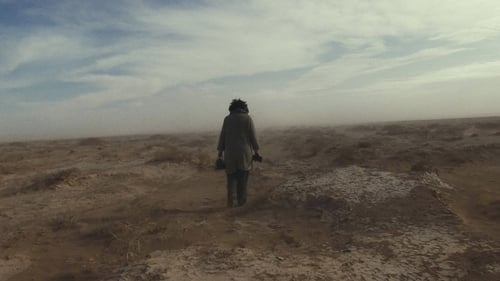
Producer
The film focuses on the suffering of Chinese who were imprisoned in a forced labor camp called Jiabiangou in the Gobi Desert in winter 1960 under Mao Zedong on the grounds that they were "rightist elements". The film tells of the harsh life of these men, who coped with physical exhaustion, extreme cold, starvation and death on a daily basis.

Screenplay
The film focuses on the suffering of Chinese who were imprisoned in a forced labor camp called Jiabiangou in the Gobi Desert in winter 1960 under Mao Zedong on the grounds that they were "rightist elements". The film tells of the harsh life of these men, who coped with physical exhaustion, extreme cold, starvation and death on a daily basis.

Director
The film focuses on the suffering of Chinese who were imprisoned in a forced labor camp called Jiabiangou in the Gobi Desert in winter 1960 under Mao Zedong on the grounds that they were "rightist elements". The film tells of the harsh life of these men, who coped with physical exhaustion, extreme cold, starvation and death on a daily basis.

Cinematography
The character of this story lives far from the worlds of the material and the spirit. He has built his own subsistence conditions. He often goes to the neighboring villages, although he doesn’t communicate with other people. He collects some waste but doesn’t beg. He prowls about the ruins of deserted villages, as an animal or as a ghost. Under double political and economical pressure, most of people are depriving of their last dignity into a world where it exists a lack of material and spirit. But a human being stays a human being. He is looking for reasons to continue to live. —Wang Bing

Producer
The character of this story lives far from the worlds of the material and the spirit. He has built his own subsistence conditions. He often goes to the neighboring villages, although he doesn’t communicate with other people. He collects some waste but doesn’t beg. He prowls about the ruins of deserted villages, as an animal or as a ghost. Under double political and economical pressure, most of people are depriving of their last dignity into a world where it exists a lack of material and spirit. But a human being stays a human being. He is looking for reasons to continue to live. —Wang Bing

Director
The character of this story lives far from the worlds of the material and the spirit. He has built his own subsistence conditions. He often goes to the neighboring villages, although he doesn’t communicate with other people. He collects some waste but doesn’t beg. He prowls about the ruins of deserted villages, as an animal or as a ghost. Under double political and economical pressure, most of people are depriving of their last dignity into a world where it exists a lack of material and spirit. But a human being stays a human being. He is looking for reasons to continue to live. —Wang Bing

Writer
It's 1949 and Tiananmen Square is a mess. Overgrown with weeds and thoroughly dilapidated it looks like hell, but it's where Chairman Mao wants to hold the Founding Ceremony for the People's Republic of China on October 1, 1949. And so TIAN AN MEN recounts the heroism, the struggle and the sacrifices of a People's Liberation Army unit as they...clean up and re-decorate the Tiananmen Gate? (Description by Subway Cinema)

Director
The inhabitants of the village of Xi Yang Tang lead lives of extreme poverty and hardship. The children spend most of their time looking after their little brothers and sisters, and helping their parents with everyday chores

Cinematography
About the Chinese drivers who transport coal from the coal fields to the buyers.

Director
About the Chinese drivers who transport coal from the coal fields to the buyers.

Director
This correspondence between Spanish auteur Jaime Rosales and critical chronicler of contemporary China Wang Bing is divided into three short films each consisting of documentary observations.

Producer
Filmed in the Inner Mongolian portion of the Gobi Desert, this film follows a group of oil field workers as they go about their daily routine.

Director
Filmed in the Inner Mongolian portion of the Gobi Desert, this film follows a group of oil field workers as they go about their daily routine.

Director
An omnibus project examining, well, the state of the world.

Director
Modern China. On a bright sunny day, in a building site, an industrial complex is being deconstructed. Night falls. The ruins of the factory are empty and silent. Phantoms appear, voices are heard, telling their stories…. From the anthology The State of the World.
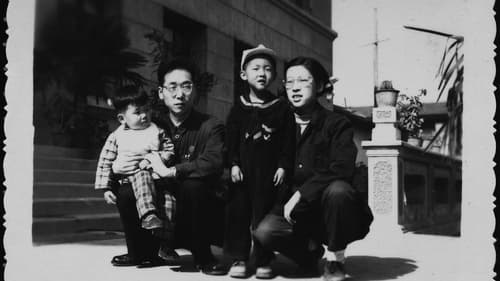
Director
중국의 겨울, 눈이 오는 마을. 밤이 깊어온다. 빨간 코트에 둘러싸인 채 한 노인이 주택 구역을 지나 그녀의 간소한 아파트로 천천히 걸어 간다. 팽밍은 안락 의자에 앉아 옛 추억을 떠올린다. 그녀의 기억은 우리를 1949년으로 안내한다. 그녀의 인생과 새 중국의 30여 년간의 역사를 관통하는 여행이 시작된다.

Director

Director
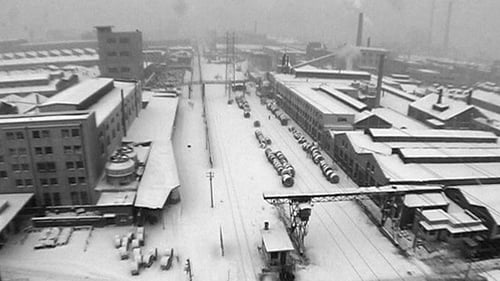
Director of Photography
중국 셴양의 티엑시 공업지구. 이곳은 일제점령기에 생겨나 해방 후 빠른 속도로 성장하기 시작했으나 1990년대에 이르면서 하나 둘씩 문을 닫는다. 한때 100만 명이 넘는 노동자가 일하던 티엑시의 쇠퇴와 이 곳 주민들의 삶을 그린 이 작품은 중국 다큐멘터리 역사에 새로운 획을 그었다. 감독은 철거명령이 내려진 도시에 6밀리 카메라 하나만을 들고 2년여 동안 촬영하는 열정을 보였다.

Editor
중국 셴양의 티엑시 공업지구. 이곳은 일제점령기에 생겨나 해방 후 빠른 속도로 성장하기 시작했으나 1990년대에 이르면서 하나 둘씩 문을 닫는다. 한때 100만 명이 넘는 노동자가 일하던 티엑시의 쇠퇴와 이 곳 주민들의 삶을 그린 이 작품은 중국 다큐멘터리 역사에 새로운 획을 그었다. 감독은 철거명령이 내려진 도시에 6밀리 카메라 하나만을 들고 2년여 동안 촬영하는 열정을 보였다.

Producer
중국 셴양의 티엑시 공업지구. 이곳은 일제점령기에 생겨나 해방 후 빠른 속도로 성장하기 시작했으나 1990년대에 이르면서 하나 둘씩 문을 닫는다. 한때 100만 명이 넘는 노동자가 일하던 티엑시의 쇠퇴와 이 곳 주민들의 삶을 그린 이 작품은 중국 다큐멘터리 역사에 새로운 획을 그었다. 감독은 철거명령이 내려진 도시에 6밀리 카메라 하나만을 들고 2년여 동안 촬영하는 열정을 보였다.

Director
중국 셴양의 티엑시 공업지구. 이곳은 일제점령기에 생겨나 해방 후 빠른 속도로 성장하기 시작했으나 1990년대에 이르면서 하나 둘씩 문을 닫는다. 한때 100만 명이 넘는 노동자가 일하던 티엑시의 쇠퇴와 이 곳 주민들의 삶을 그린 이 작품은 중국 다큐멘터리 역사에 새로운 획을 그었다. 감독은 철거명령이 내려진 도시에 6밀리 카메라 하나만을 들고 2년여 동안 촬영하는 열정을 보였다.

Director
Four years ago, Kingsley arrived from Nigeria in Guangzhou, China and shared a small room with other Africans in the basement of a commercial building. He converted this modest space into a barber’s shop. Kingsley is keen to start an import and export company and to register it officially in Guangzhou. He works every day until 11 pm then goes to sleep in a chair at McDonald’s. He must also send money to his wife, so despite all his efforts, he is still unable to put aside enough money to register his business. In mid-November 2019, he goes back to Lagos to renew his visa. There, he and his wife rent a small stall in the Ikotun Market in the suburbs. But business is hard. Early in 2020, Kingsley is due to head back to China to continue his quest, but with all travel blocked by the Covid-19 epidemic, he remains stuck in Nigeria. Meanwhile, in Guangzhou, the director meets Evelyn, a Nigerian woman, trying to survive with her 6-year-old daughter and with another one on the way.














